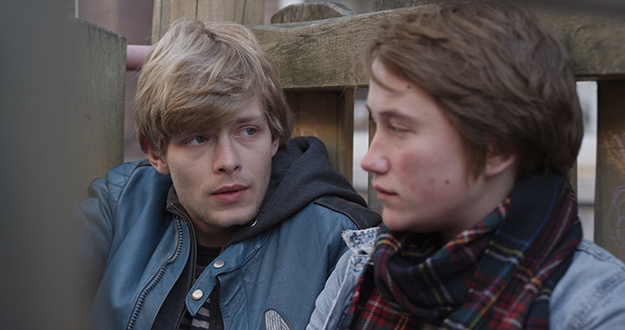The sexual violence that occurred during the 1999 Kosovo war has left deep unaddressed scars in Kosovar society, be it severe physical and psychological trauma or as victims of post-war stigmatization.
A few weeks ago, the Kosovo Cinematography Center selected Edon Rizvanolli’s first feature film “Unwanted” (“T’Padashtun”) as the Kosovar entry for the Best Foreign Language Film at the 90th Academy Awards. The very same week, the film was presented at cinemas in Prishtina, Prizren, Gjakova and Peja.
The film’s narrative is straightforward. It starts with a scene of a school fight, focusing on a violent teenager punching a schoolmate who’s lying on the ground. His mother, Zana (Adriana Matoshi), works in a flower shop trying to make ends meet and supporting her troubled teenage son Alban (Jason De Ridder). She somehow manages to find a job for her son at a bicycle shop, where he meets Ana (Niki Verkaar).
Alban and Ana begin an exciting teenage love affair, opposed by both teens’ parents based on their ethnic backgrounds. Both parents are from Kosovo: Zana is an Albanian and Ana’s father, played by Edon Rizvanolli, is a Serb from Kosovo. The final sequences of the film unveil the dark secrets of Zana and her confession to Alban, which brings things full circle to the beginning of the film and his violent behavior.

Photo: Courtesy of “Unwanted.”
Rizvanolli spent some three years researching for the film, which was inspired by events that took place during the war in Kosovo. The stigmatization and the status of the survivors of war rape, in particular, not being prioritized drove him to approach the topic in the hope that “we find the strength in ourselves and start dealing with it.”
The film is neither a typical Dutch nor Kosovar film. Although it’s Rizvanolli’s first feature film, the direction and the structure of such a delicate and uncomfortable story is shrewdly unwrapped. Instead of falling into the trap of turning the story into a pathetic melodrama, his film serves as a reminder of post-war consequences and the alienation of the victims.
The context of the film is relevant throughout the Balkans as Rizvanolli’s research wasn’t limited to Kosovar victims of sexual violence. He came across similar stories from Bosnia and Herzegovina. Rizvanolli’s aspiration is to spark a discussion in our society regarding the subject. “Unwanted” can help spark that discussion in a wider geographical context, where societies have failed to work on the reintegration and de-stigmatization of victims.
Unfortunately, sexual violence remains a common phenomenon in most modern conflicts, leaving damaging consequences for all victims and to a society at large. Survivors of conflict-related sexual violence remain stigmatized in the Western Balkans, and a culture of shame and silence surrounds the issue. Rizvanolli’s film is a standout continuation of the struggle of filmmakers from the region to break the silence and start the process of acceptance.
Feature image: Courtesy of “Unwanted.”

